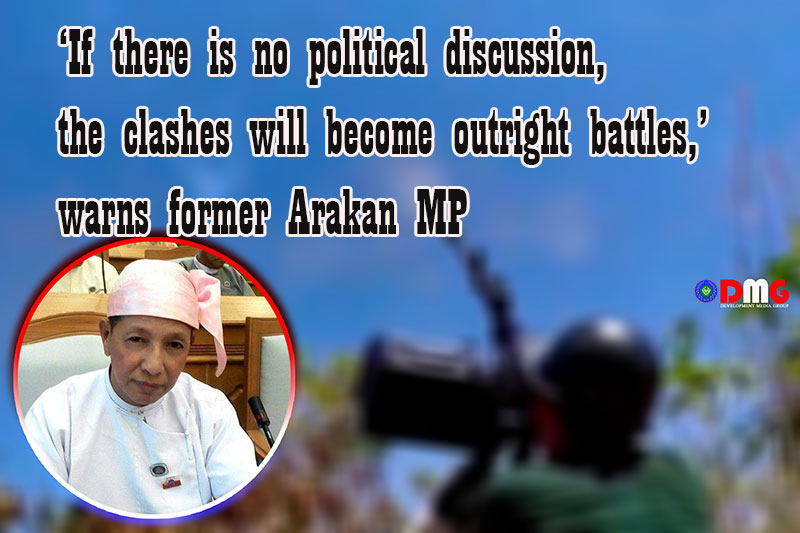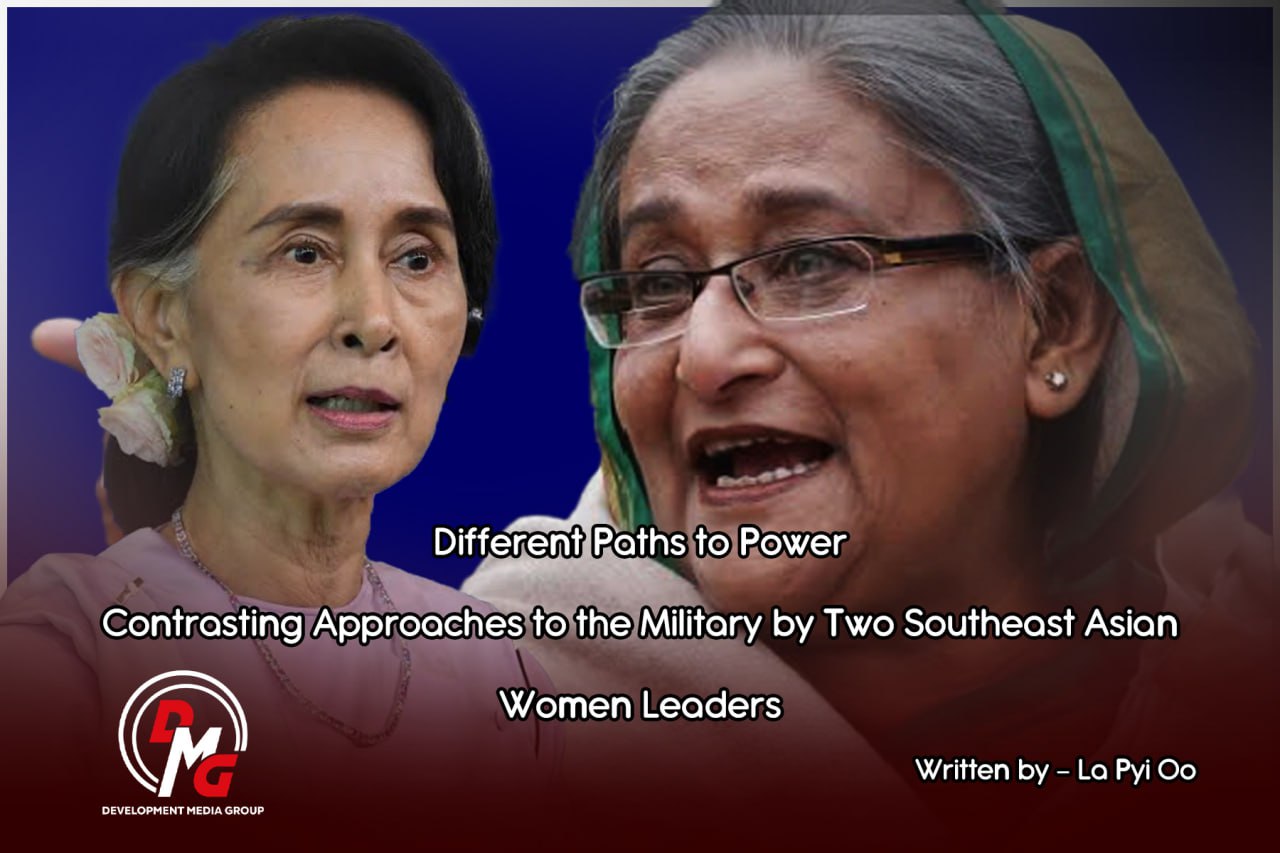‘If there is no political discussion, the clashes will become outright battles,’ warns former Arakan MP
The military should not use passenger buses. Bus owners may feel compelled to accept the cargo of the Myanmar military. The military should only use their own trucks and vehicles, and it is totally unacceptable to use public transport for military purposes.
15 Sep 2022

15 September 2022
The United League of Arakan/Arakan Army (ULA/AA) issued a notice on Thursday, saying it will impose checks on vehicles and vessels as Myanmar’s military regime has been bringing in reinforcements and weapons using public transport.
The regime is sending reinforcements and weapons to its bases in Arakan State not only with military ships, trucks and helicopters, but also via passenger planes, express buses, motorboats and express ferries, said the ULA notice.
Veteran Arakanese politician U Pe Than spoke to DMG about recent military and political developments in Arakan State.
DMG: What is your view on the AA’s notice?
U Pe Than: The main point of the warning is that the regime is using civilian vehicles and vessels to transport its troops, and send food supplies and weapons. AA will therefore impose checks on them; and AA warns transportation service providers to report to AA before they travel; and there will be punitive actions if they fail to do so.
The regime must avoid using public transport in moving its troops. Otherwise, it will annoy vehicle owners, and cause travel delays for passengers. The AA has warned the military not to use public transportation in moving its troops, otherwise it will take military action to intercept.
DMG: How is the Myanmar military reinforcing its troops in Arakan State?
UPT: The military largely does not use military trucks to carry food supplies and weapons because of frequent mine attacks and ambushes. But they still use military ships. And soldiers also take passenger buses, and send food supplies with passenger buses. In that case, the AA might impose checks.
The military should not use passenger buses. Bus owners may feel compelled to accept the cargo of the Myanmar military. The military should only use their own trucks and vehicles, and it is totally unacceptable to use public transport for military purposes.
DMG: What do you make of the Myanmar military’s efforts to expand its presence and bolster its weaponry?
UPT: Clashes between the military and AA have resumed in Arakan State in recent days after the two sides reached an informal ceasefire in late 2020. The military’s BGF [Border Guard Force] outposts in Chin State’s Paletwa and Maungdaw in Arakan State were attacked and seized by the AA. The AA also cut off the supply routes for the military and launched attacks on some military camps.
The military retreated from some military outposts and has been unable to take back control of military camps near the border. The military attacked the AA camps with fighter jets and increased the military presence to fully take back control of its outposts near the border.
DMG: How do you view the military tensions on the ground between the military and the AA?
UPT: The informal ceasefire built on mutual understanding between the AA and military has broken down. But it is not the case that there are clashes in the entire state of Arakan. Fierce fighting is ongoing in Paletwa in Chin State and Maungdaw in Arakan State.
The Myanmar military suffered heavy casualties in clashes with the AA and some military outposts were seized. The military retreated from some military outposts due to security weakness.
There may be some weakness for the military on the ground because the AA cut off supply routes to be used by the military to transport food and weapons, and send reinforcements. The regime is losing diplomatically internationally, and is struggling to fight against EAOs [ethnic armed organisations] and PDFs [People’s Defence Forces] across the country.
Fierce fighting has resumed in Arakan State and the military will try to control Arakan State by all means possible. The regime pretends to control mainland Myanmar. I think the military regime will not be able to take control of Arakan State in the long run. This is the reason why the military junta is attempting to increase the military buildup and is sending reinforcements to Arakan State.
DMG: How will the political situation in Arakan State play out?
UPT: The situation in Arakan State is different from Myanmar’s crisis. There were no organisations in Arakan State that could revolutionise against the powerful Myanmar military in the past. Now the ULA/AA has the full support of Arakanese people and is able to take control of many areas in Arakan State.
If there is no political discussion, the clashes will become outright battles. The ULA/AA wants to establish a liberated area. Therefore, if AA does not continue to discuss this situation politically, the fighting with the Myanmar military will become more intense in Arakan State. Who will win and who will lose? I think it will be a decisive battle between the AA and the military.
DMG: Under what conditions do you see the fighting in Arakan State being able to end?
UPT: The AA’s expectation is to achieve a confederacy. If the military doesn’t comply with the AA’s demands, both sides will resolve it by military means, without discussion.





.jpg)














